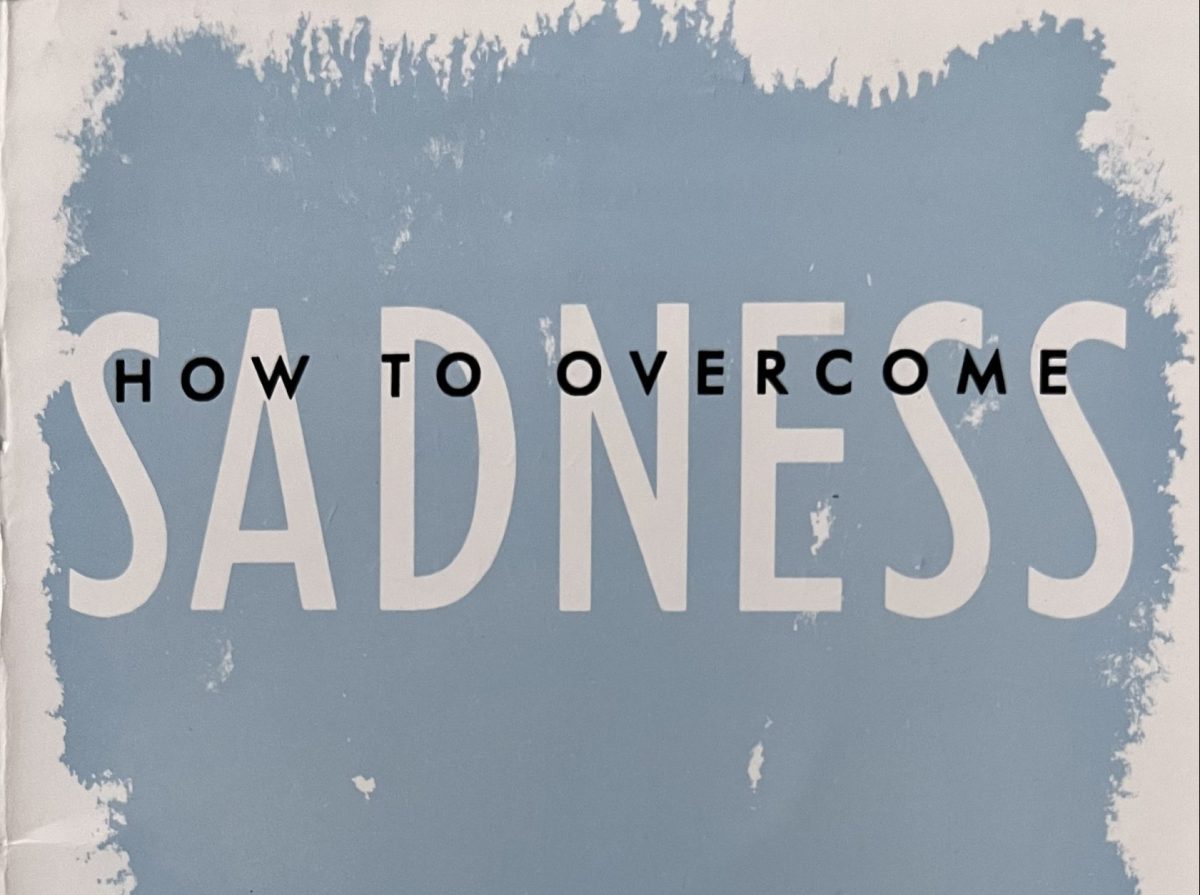Do you sometimes feel sad? Are there times when you feel sad for no apparent reason? When experiencing such feelings, take a few moments to examine what has been going on within your mind. Were your thoughts positive and constructive? Have you entertained thoughts of lack, failure, problems, and difficulties? Have your thoughts been negative and unpleasant?
Examine the feelings that followed your thoughts. Did they not accurately reflect the nature of your thoughts? Feelings follow thoughts as surely as night follows day. To indulge in negative, depressed, and unhappy thoughts will guarantee that you will soon experience negative, depressed, and unhappy feelings.
Examine your behavior. Notice that your actions usually reflect your predominant state of mind. To start a day on a negative, depressed note leads to thoughts, feelings, and actions of a similar nature.
It is a sound psychological practice to examine one’s thoughts, feelings, and behavior. Socrates advised, “The unexamined life is not worth living.” As we learn to look objectively at what we are presently doing, we will make discoveries that will aid us in overcoming those things that cause discomfort and distress. With this knowledge, we can be objective and see more clearly how we are creating the very state of mind that causes us to feel sad.
Many people have not realized that they have something to do with their feelings. They falsely believe their feelings are independent of themselves, believing them to be caused by others, or conditions, or circumstances outside of themselves. The truth is, we can be happy, or we can be sad, according to how we use our mind.
One of the greatest lessons we can learn is that our state of mind depends on us. It depends upon our ability and decision to rule the forces of our mind, emotions, actions, and reactions. We are either the master or the victim of our mind. Which are you? We learn to deal with and minimize our difficulties or we dramatize and thus magnify negative experiences. Are you, without realizing it, creating a sad, unhappy state of mind?
Maybe you feel you do not have the right to be happy. In view of the many traditional religious teachings, do you believe it is wrong to be happy all the time? Old superstitious beliefs tended to make one feel that God was nearer to those who suffered; that the unhappy, tragic, embittered, and lonely souls had somehow found God’s favor. Some people feel guilty being happy with so much suffering in the world. My friend, adding more suffering to the world is in no way beneficial to anyone. It is the happy, well-adjusted individual who can make a contribution to society and thus add to the upliftment of mankind.
It is true that some people believe suffering is an essential part of life. Some believe that suffering is God’s will. Some believe that suffering incurs God’s favor. Nothing could be further from the truth.
Jesus said, “I came that ye might have life and have life more abundantly.” Jesus was not a sad, unhappy, or dismal human being. He made no claim that it was right or good for man to be morbid, depressed, and unhappy. In fact, He said, “These things have I spoken to you, that my joy might remain in you, and that your joy might be full.” These words from John 15:11 certainly do not convey the idea that we should be sad. The sad, unhappy countenance shows a lack of understanding of His message and His purpose.
A quote from one of the “Lost Books of the Bible,” II Hermes advises, “Put all sadness far from thee; for it is the sister of doubting and anger… for sadness is the most mischievous of all spirits, and the worst to the servants of God; it destroys the spirit of man.”
Jesus firmly placed His attention on God. He sought, through His realization of God, to uplift man and teach him a new and different way of Jiving. Jesus was not bored with life. He was challenged and involved deeply in life. He did not teach his followers to postpone living with the thought of waiting for some nebulous time beyond the grave to experience happiness.
To become attuned to God and follow His good will for our lives, it is essential that we overcome the habit of sadness. The following steps will help you move forward into a life of joy and happiness.
Decide to Be Happy. Remind yourself that happiness is a natural state and, by learning to be happy, you are simply returning to your natural state. Once you have made up your mind to be happy, you will be amazed how quickly a positive change will come in your thoughts, your feelings, and your behavior.
Because you are created a thinking being, you have the power of choice. You need not be one of those people who chooses to go around with a long face, filled with self-pity and looking for sympathy. That is an insult to the wonderful human being you were created to be.
Realize that your happiness will not come from any outer thing or person. It is not dependent upon what someone does or does not do. It comes from your choice regarding the thoughts you think and the feelings you entertain.
As a thinking being, choose to be happy. You are today the product of the choices you have made in the past. Your future will reflect the nature of the choices you make today. Happiness is a choice. Think about this idea!
As a spiritual being, you are a storehouse of latent power. You can draw upon this power and direct it as you choose. Think of it as similar to the latent power within a volcano; it stays dormant until activated, and then becomes a powerful force. Unfortunately, the volcano demonstrates undirected power which is destructive. Through giving direction to the power that is within you, you can be successful in whatever you choose. You can activate your power to fulfill the deep, lasting desires of your heart—and you should!
Sense of Direction. In order to activate the power that is within you, it is essential to have a sense of direction. Where do you want to go with your life? What are the things of lasting value that you want to experience? While most people would quickly agree that they want to be free from any negative condition, that is not enough. Define those negative conditions from which you wish to be free. Be specific so that you give the power within you a goal toward which to work.
It is not difficult to make such decisions provided that you listen to the deep, lasting desires of your heart. Have you pushed these desires to the background so much that you are hardly aware of their existence? Desires of the heart are important, for they indicate the urging from the Spirit of God that is attempting to move us forward into a better, more wonderful life.
If you are unaware of your desires, listen in the silence of prayer. Ask God to reveal to you the direction your life is to take that would bring satisfaction and happiness. Instead of listening to the demands of the world, listen within. In silence we wait upon God and the answer will always come. It may appear as a thought that comes to your mind, a hunch, or an intuitive feeling, whether during your prayer time or later.
Sow Seeds of Happiness. You can help yourself along the road to happiness by sowing seeds of happiness in your mind. The thoughts you think are the seeds you plant that reproduce after their kind. If you plant thoughts of unhappiness and sadness, you will reap similar conditions and circumstances. On the other hand, if you sow thoughts of joy, enthusiasm, and love, you will reap the good that God has planned for you.
Paul wrote, “Be not conformed to the world. but be ye transformed by the renewing of your mind that you may prove that good, acceptable, and perfect will of God.” What a wonderful gift from God it is to have the ability to renew our minds by changing the nature of the thoughts that we think! Just as we would not sow cucumber seeds in our garden and expect to get corn, neither should we sow seeds of sadness, depression and despair and expect to get a life of joy and happiness. Everything reproduces after its kind. Your mind is no exception to this rule.
The condition of your life at any given moment is the direct result of what is in your consciousness; that is, your collective thoughts and feelings. Your life at the present moment is the harvest of seeds sown in the past, the result of the law of cause and effect. The Scripture states, “Whatsoever a man soweth, that shall he also reap.” This applies to every aspect of life, for it is an unchanging spiritual law. Today we are sowing the seed of tomorrow’s harvest, and we are reaping the results of what we have previously planted.
If we choose to be happy, we must get busy today sowing and cultivating our seeds of happiness. Our feelings, actions, and reactions will soon follow the direction we provide through our thoughts of joy and happiness.
Isn’t it exciting to realize that you can help yourself move from sadness to happiness? Decide to be happy. Determine your sense of direction, sow seeds of happiness, then speak words of happiness.
Speak Words of Happiness. This step we must take to break the habit of sadness is a bit more challenging. Have you given serious thought to your vocabulary? What kind of words do you use most frequently? How do these words sound to the listener? Most people are so busy talking that they give no thought to the type of words they use or the ideas the words represent.
Few people realize that the words they speak have an effect upon the nature of their lives. Speaking words of anger, negation, lack, and sickness create similar conditions, affecting the body as well as one’s outer affairs. There is power in words.
The Bible contains many references to the power of the spoken word. Solomon said, “Whosoever keepeth his mouth and tongue keepeth his soul from troubles.” Isaiah said, “Woe to them that decree unrighteous decrees.” A statement from the book of Proverbs—“life and death are in the power of the tongue”—contains an idea that should be given further consideration. Jesus said, “By your words you are justified, and by your words you are condemned,” and that all of us are accountable for the words we speak.
The power of the word has been given to us to use as a tool that will serve in improving all aspects of life. Words have their effect whether we recognize it or not, for they “carry vibrations through the universal ethers and move the intelligence in every form.”
Learn to become aware of the words you speak. Through your words, you could be unknowingly creating a negative life filled with problems. Notice your habit patterns of speech. Note the character and nature of the words you use. Speak words that make you feel happier and that add happiness and joy to those who hear you.
You can break the habit of sadness by using words that fill your mind and heart with feelings of joy, peace, and happiness. Speak of the goodness of others, not their failings. Speak words of encouragement to your family, friends, and co-workers. Look for the good that is inherent in all people and all things.
You can overcome sadness and be happy. Life is meant to be enjoyed. Life gives you the opportunity to activate the wonderful powers inherent within your soul and direct them toward purposeful ends. Appreciate the truth that you are a creative being. Overcome sadness by deciding to be happy, getting a sense of direction, sowing seeds of happiness, and speaking words of happiness.



